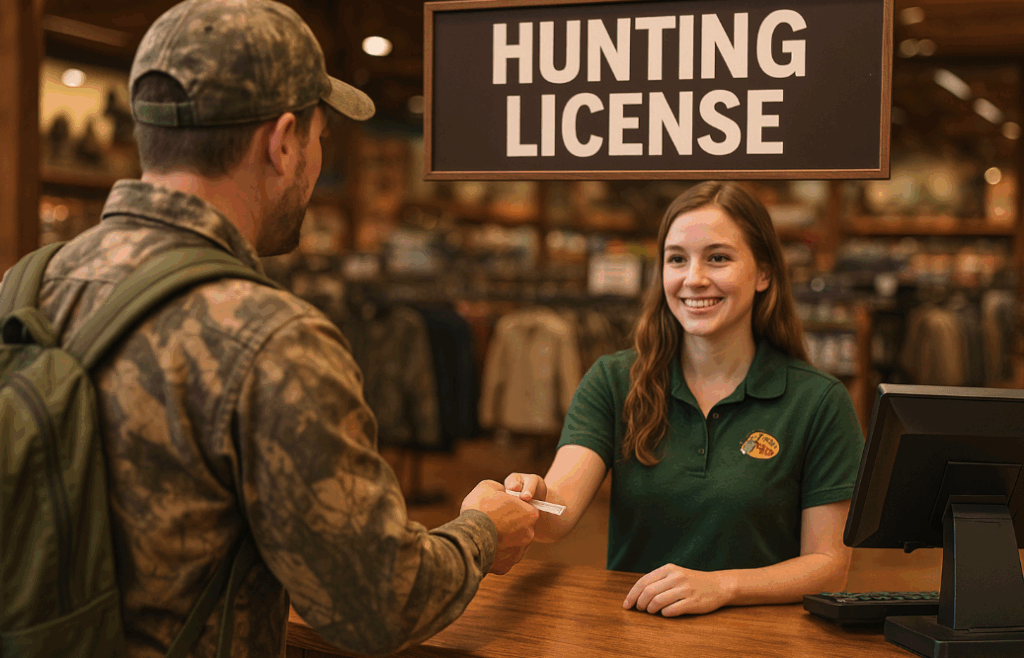Take an Official State-Approved Hunter Safety Course
Quick answer

Massachusetts requires a hunting license for anyone age 15+. Youth 12–14 hunt only when accompanied by a licensed adult (18+), sharing one firearm/bow and one daily bag; one minor per adult. Under 12 may not hunt.
To buy a MA hunting/sporting license you must either (1) have a Basic Hunter Education certificate (from MA or any U.S./Canadian/Mexican jurisdiction) or (2) have held a hunting/sporting license before Jan 1, 2007. If buying online, you’ll affirm one of these via electronic affidavit.
Purchase a Minor Hunting License with parent/guardian consent. If the minor has Basic Hunter Education, they may hunt without an adult; without it, they must hunt with an adult. (Firearms licensing rules still apply where relevant.)
A standard hunting (or sporting) license lets you hunt within Massachusetts and comes with two antlered deer tags valid statewide. Depending on species and season, you’ll add permits/stamps such as:
Antlerless Deer Permit (ADP) for any doe or antlerless harvest—apply before the deadline, then check whether you were awarded a permit for your selected Wildlife Management Zone.
Wild Turkey Permit (OTC) for spring/fall turkey.
Black Bear Permit (OTC) for bear seasons.
Pheasant/Quail Permit for anyone 15+ hunting stocked pheasant or bobwhite quail.
Waterfowl requirements: the Massachusetts Waterfowl Stamp (15+) and the Federal Duck Stamp (16+), plus the HIP survey each year for migratory-bird hunters.Where to buy & how to carry
Buy online at MassFishHunt, by phone through the MassFishHunt help line, or in person at license agents/MassWildlife offices. You may display a legible image of your license on your phone in the field, but if your hunt requires a tag (deer, bear, turkey) you must carry the paper tag and attach/validate it as directed.
For deer, bear, and turkey, fill out and attach the paper tag immediately after harvest and report within 48 hours—online via MassFishHunt or at a check station. During the first week of shotgun deer season, all deer must be reported in person so biologists can collect data; online reporting resumes after that week.
Ages 12–14: no license/stamps for the youth; they must hunt with a licensed adult (18+), share one implement and one bag, and follow all season/permit rules through the adult.
Ages 15–17: need a Minor Hunting License; with Basic Hunter Education they may hunt without an adult, otherwise they must be accompanied.
Massachusetts has a narrow, property-only exemption: qualified farmers (≥50% income from agriculture) or landowners with 300+ contiguous undeveloped acres—and immediate family/tenants domiciled on that land—can hunt on that property without a hunting license if they first obtain a Farmer/Landowner permit from MassWildlife. Tags/permits provided by that program are valid only on the approved property; statewide seasons, tagging, and reporting rules still apply. To hunt any other property, you must buy a regular license/permits.
Massachusetts is one of two states with a full Sunday hunting ban (by statute). Unless the legislature changes the law, Sunday is closed to hunting statewide (with very narrow exceptions tied to commercial shooting preserves and other special situations in regulation).
This is a FREE Boating course.